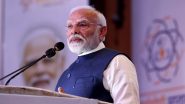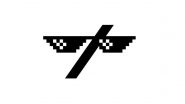Caracas, Apr 16 (AFP) The first shipment of Red Cross humanitarian aid arrived in crisis-wracked Venezuela on Tuesday following approval from President Nicolas Maduro's government, the organization confirmed.
"It is with great joy and responsibility that we would like to reveal that right now the first Red Cross humanitarian aid shipment is entering Venezuela," said Mario Villarroel, president of the organization's Venezuelan branch.
The shipment, which arrived at the airport serving Caracas, includes desperately needed medication, medical supplies and power units "that will be distributed in various hospitals," added Villarroel.
Venezuela has suffered more than four years of recession marked by shortages of basic necessities such as food and medicine.
The United Nations says a quarter of its 30 million population is in urgent need of aid.
Last week, Maduro and the International Committee of the Red Cross (ICRC) came to an agreement to allow in the humanitarian aid.
Supplies destined for Venezuela's long-suffering population formed the basis of a stand-off between Maduro and parliament speaker Juan Guaido, who launched a direct challenge to the president's authority in January.
Guaido has since been recognised by more than 50 countries, including the United States, as Venezuela's interim president.
But despite a highly publicized campaign, he failed to force humanitarian aid stockpiled over the border in Colombia into the country after the military -- which remains loyal to Maduro -- blockaded a bridge crossing.
Maduro claimed the aid was nothing more than a smokescreen to cover a US-led invasion.
Cardboard boxes bearing the symbols of the Red Cross and Red Crescent movement were loaded by forklift onto trucks at the Maiquetia international airport, according to images shared on social media.
Earlier on Tuesday an official confirmed to AFP, on the condition of anonymity, that the shipment had arrived.
But Francisco Valencia, president of the Coalition of Organizations for the Right to Health and Life, voiced concerns that "there is still no clarity over what aid is arriving" and whether or not it would help the "more than 300,000 people in Venezuela with a high risk condition."
Public hospitals have struggled to treat patients due to shortages of antibiotics, bandages and respiratory equipment.
The government has been unable to import what the country needs due to a lack of liquidity, in part due to a sharp drop in its oil production -- around a third of its level from 10 years ago -- which accounts for 96 percent of its revenue, as well as US sanctions.
Maduro has repeatedly denied Venezuela is suffering from a humanitarian crisis and blames the US for the oil-rich South American country's economic woes.
But last week he said on national TV and radio that his government and the Red Cross had agreed "to work together with UN agencies to bring into Venezuela all the humanitarian aid that can be brought."
Guaido blames government incompetence and corruption for his country's crisis.
Last month, the ICRC announced it would begin in early April a first phase of aid distribution to help 650,000 people.
ICRC president Francesco Rocca had said the operation would be "similar" to a previous one that delivered aid to Syria.
Villarroel urged both sides to avoid "politicizing this great achievement."
The UN estimates that 3.7 million Venezuelans are malnourished and 22 per cent of children younger than age five suffer from chronic malnourishment. It also estimates that more than 2.7 million citizens have fled Venezuela since 2015. (AFP)
(This is an unedited and auto-generated story from Syndicated News feed, LatestLY Staff may not have modified or edited the content body)













 Quickly
Quickly

















